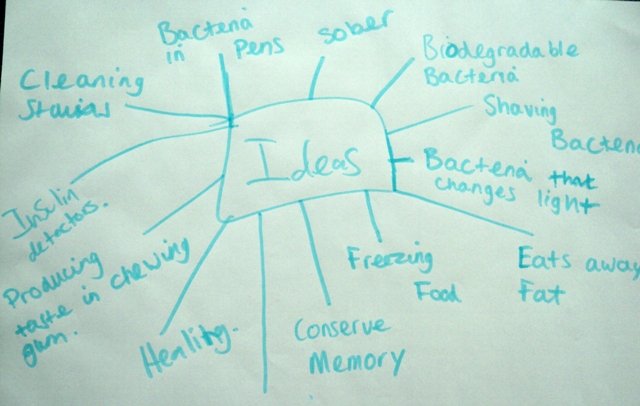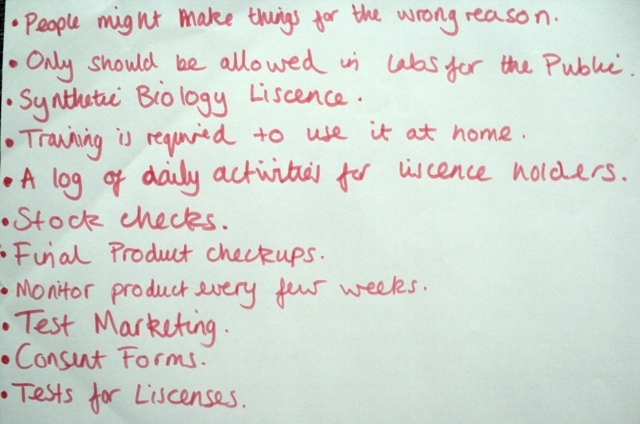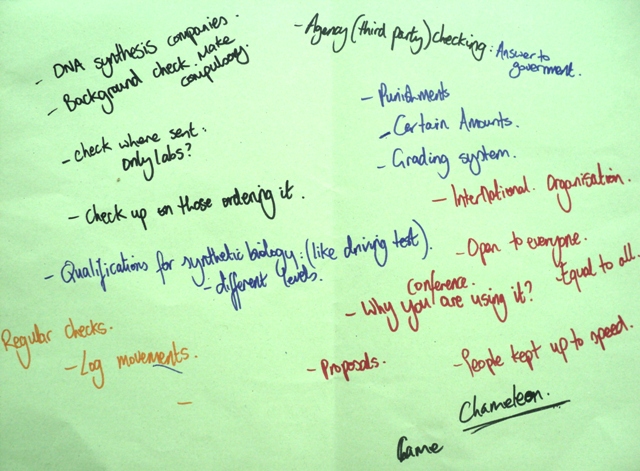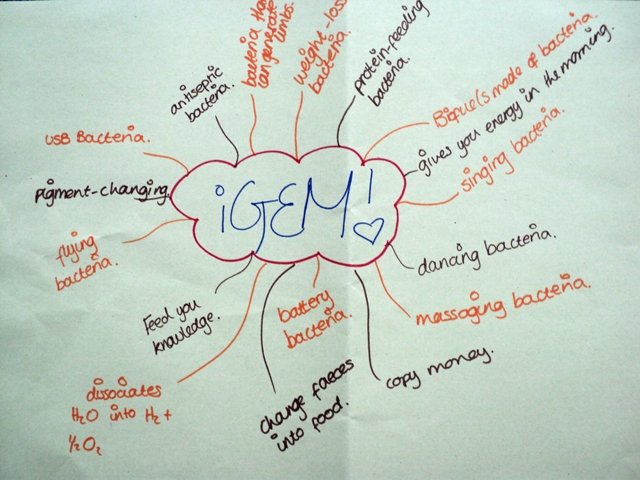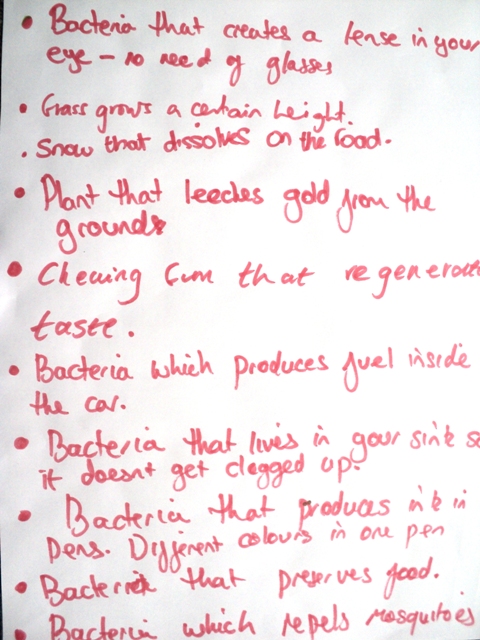Team:Imperial College London/Workshop
From 2010.igem.org
| Synthetic Biology School Workshops |
| We ran a series of school workshops in local schools. Read below to find out more or sit back and watch the video! |
| Introduction | Download the Toolkit | |
| Public engagement is an essential part of determining priorities in research funding, but there is more to it than simply setting policies. Bridging the gap between academics and the wider public can achieve so much more than that.
When discussing the public engagement aspect of synthetic biology, we realised that school students would be an interesting demographic to present the subject to. We also liked the idea of inspiring young people to learn more about synthetic biology and iGEM! As a team, we wanted to experience explaining and discussing the subject of synthetic biology and our project in particular, with non-specialists. We also wanted to demonstrate the importance of engaging the public when embarking on a project like ours. Engaging a younger audience could be an effective way of introducing synthetic biology to the wider public, as they are likely to be more familiar with web-based tools and are therefore more likely to embrace the potential of synthetic biology. We wanted the students to think about synthetic biology in a way that makes them believe that they can shape the course it takes in the future. It would be great if they could see science as a way of being creative. Also, we hoped to show the students how the media can affect the way people perceive synthetic biology and genetic engineering. We knew that the workshops would help our project in terms of providing feedback that might change our own perspectives of synthetic biology, including any societal implications it might have. Hopefully, in the future other iGEM teams will follow in our footsteps so we can inspire young scientists to learn more about synthetic biology! The schools we chose to run the workshops at were state-funded schools, because we wanted to demonstrate that anyone can learn about synthetic biology, regardless of their background. |
We'd love it if other iGEM teams felt inspired to run school workshops of their own. To give you a helping hand, we've created some tools to get you started! | |
| Here's a handout to give to the students, something to keep them up to speed with the presentation and that they can take away with them to learn more. | ||
| Customise this template presentation to suit your own school workshop. Everything you need to get started is inside. | ||
| Plan |
| Each workshop ran for 1 hour and 40 minutes, including a 10 minute break in the middle.
We wanted the workshop to be as visual and exciting as possible, so we used various images and videos throughout. For more information, see the slideshow. Introduction (15 minutes) The aim of the introductory session was to explain the concept of synthetic biology clearly to the students, allowing them to come up with their own opinions of what they think it could mean. We then wanted to discuss a few applications, the iGEM competition, and give an overview of our project. Activity 1 (15 minutes) In small groups, the students had to come up with different ideas for applying synthetic biology. Each group was given a different key word, such as bioremediation or sanitation. During this activity, each group made a poster detailing their ideas, which they used when explaining their ideas to the other groups. Presentation: Regulation of Synthetic Biology (10 minutes) We decided that it was necessary to introduce the students to this side of research, of which their experience was likely to be limited. Break (10 minutes) Activity 2 (20 minutes) This was more of a debate/discussion style activity. The idea was to discuss the various concerns and issues associated with synthetic biology, allowing the students to voice their own opinions. We also discussed our project in particular, such as the social impacts of putting GMOs into water and so on. Presentation: Synthetic Biology and the Media (10 minutes) This was an opportunity for us to show the students how the media can change the public’s opinion of a particular subject, simply by using provocative language or images. We used various news headlines and news programmes as examples. Activity 3 (20 minutes) The aim of this activity was to allow the students to experience the process of marketing a synthetic biology product. In groups, they were each given a synthetic biology product for which they had to act out a TV advert. They had to address the concerns of the public, and reassure people that the organism in question was ‘safe’. |
| Reflections |
| At the same time as being a very informative and useful exercise, we each found that running the workshops was actually really good fun. It was refreshing to see so many new ideas and applications for synthetic biology and the students really impressed us with their openmindedness and enthusiasm. It was really easy to tell when people understand the concept of synthetic biology because ideas start popping up every few seconds!
There are few opportunities in most curriculums these days to be creative in science lessons. This was a really important part of the workshop for us, because a vital part of working in research is being creative in the way you solve problems. It was really important to strike the correct balance between scientific theory and other aspects of synthetic biology. The students seemed to really enjoy applying what they had learnt in their school lessons, such as cloning, to solve real-life problems. We tried to tie in what they had already learnt, or what they would be learning that year, into the workshop so that they wouldn't be learning lots of new material all in one go. Nevertheless, explaining some of the methods used in synthetic biology was tricky because we didn't want to lose their attention, but we felt that some of the information would be beneficial for them to get a grasp of, for example, the principles of BioBrick assembly. We experimented with different group sizes, and found that a group of fewer than 5 students didn't facilitate effective discussion because the students began to feel intimidated! More than 10 students in one group might result in ineffective discussion and people would start to feel ignored. We found that allowing the competitive nature of the students to come out actually helped keep the workshop fun and exciting. We would like to keep the ties with Harris City Academy, St Augustine's High School and Quintin Kynaston so that other students and academics can experience this aspect of public engagement, regardless of what they study/research. |
| Recommendations |
|
We hope that other iGEM teams will feel inspired to do synthetic biology workshops of their own. But remember, public engagement is for life, not just for iGEM! Below are some recommendations that you might like to consider before running your workshops.
Here's some of the posters the students made: |
| Posters | ||
 "
"






